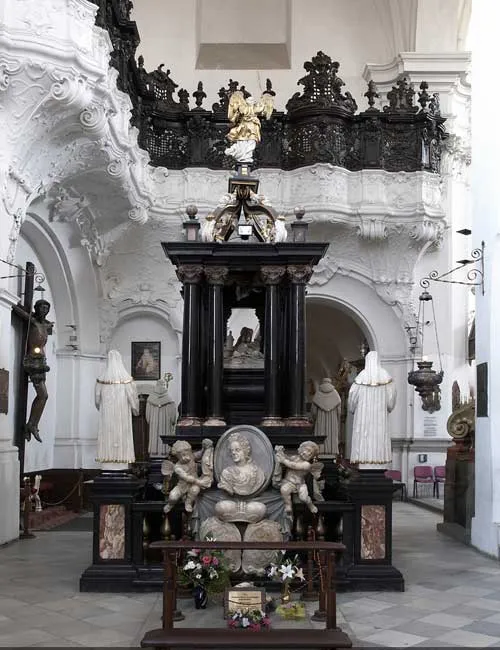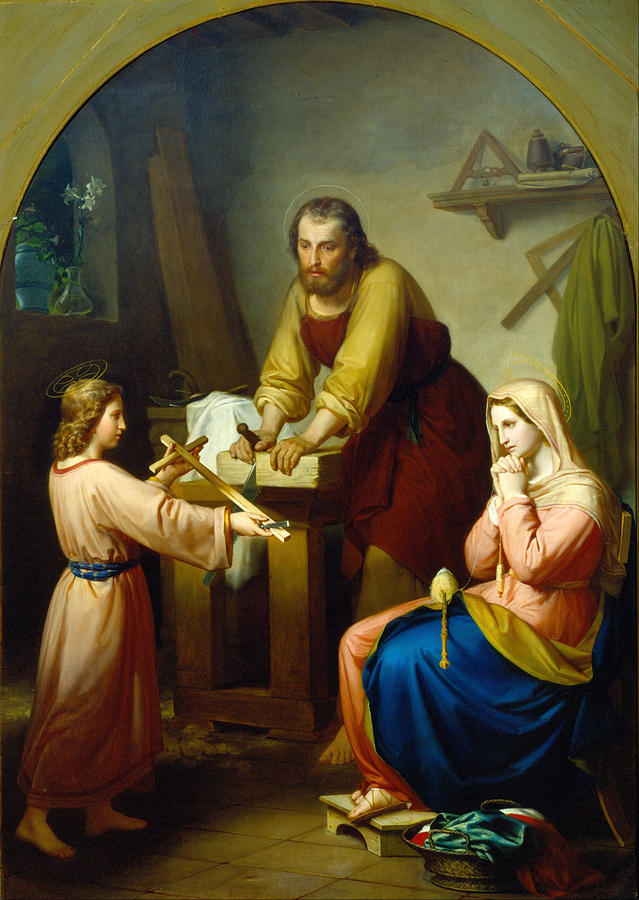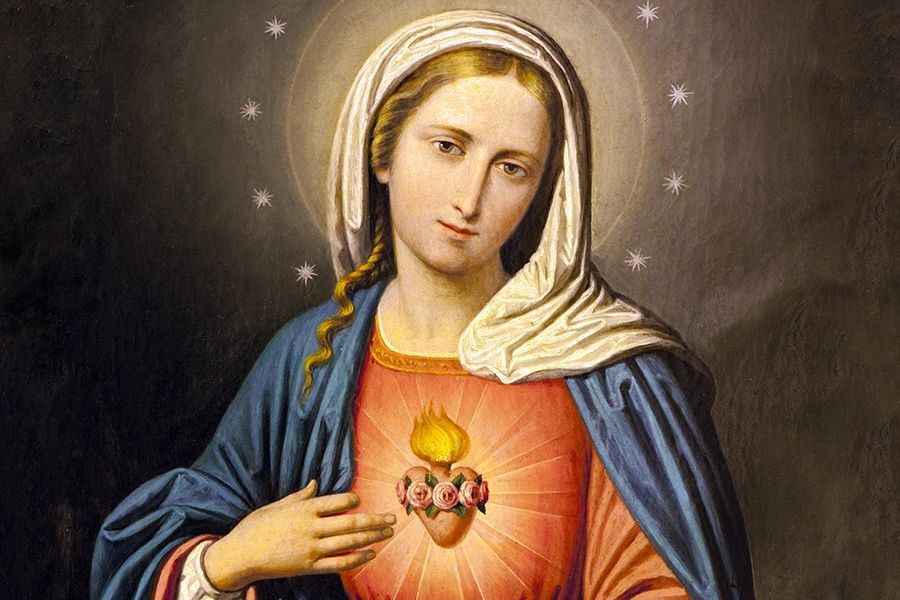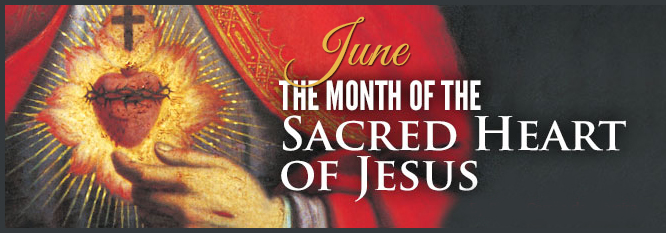St. Jadwiga Hedwig of Poland Biography
St. jadwiga of Poland, also known as St. Hedwig, was a Polish princess and later the queen of Poland. She was born on October 16, 1373, the oldest daughter of Louis the Great, King of Hungary and Poland, and Elizabeth of Bosnia. Jadwiga was well-educated and fluent in several languages, including Latin, German, and Polish.
In 1386, Hedwig was betrothed to William, Duke of Austria, but the marriage never took place due to political tensions between Poland and Austria. Instead, Hedwig married Jogaila, Grand Duke of Lithuania, in 1386, in a union that helped to unite Poland and Lithuania. Jadwiga and Jogaila were crowned King and Queen of Poland in 1386.
Hedwigwas known for her charity and generosity, particularly towards the poor and the sick. She founded hospitals and orphanages, and was known for personally tending to the needs of the sick and the poor. Jadwiga was also a patron of the arts and education, and established the University of Krakow in 1364.
Despite her short reign, Jadwiga made significant contributions to the development of Poland. She worked to strengthen the economy and the legal system, and helped to establish a more centralized government. Jadwiga was also a strong advocate for the rights of the Polish nobility and worked to improve relations between the nobility and the peasants.
Jadwiga died on July 17, 1399, at the young age of 25, after giving birth to her first child. She was canonized as a saint in 1997 by Pope John Paul II, who declared her the patron saint of Europe.
St. Jadwiga is remembered for her charitable works and her contributions to the development of Poland. She is revered for her devotion to the poor and the sick, and for her commitment to education and the arts. St. Jadwiga’s legacy continues to inspire Catholics in Poland and around the world.
Prayers to St. Jadwiga
Dear St. Jadwiga of Poland, intercede for us before the Lord and pray that we may be blessed with the wisdom and compassion that you possessed in your lifetime. May we follow your example of charity and generosity towards the poor and the sick, and may we always strive to serve the common good. Help us to be courageous in the face of adversity and to always put our trust in the Lord.
Prayer to St. Jadwiga for Europe
O St. Jadwiga, patron saint of Europe, pray for the unity and peace of our continent. May we remember the lessons of your life and strive to build bridges of understanding and cooperation among all people. Help us to overcome the divisions that threaten to tear us apart and to work together for the common good.
Prayer of Intercession to St. Jadwiga
O blessed St. Jadwiga, we ask for your intercession as we seek to follow in your footsteps as a patron of education and the arts. May we cultivate a love for learning and a desire to seek knowledge and wisdom. Help us to use our gifts and talents to serve others and to bring glory to God. Amen.
Children’s Story about the life of St. Jadwiga
Once upon a time, in the beautiful country of Poland, there was a kind and gentle princess named St. Jadwiga. She was known throughout the land for her compassion and her love of helping others.
One day, a terrible famine struck the land, and many people were struggling to find enough food to eat. St. Jadwiga knew she had to do something to help, so she went to her father, the king, and asked for his permission to sell some of the royal jewels and use the money to buy food for the hungry people.
The king was hesitant at first, but he knew his daughter had a kind heart and that she truly wanted to help. He agreed, and St. Jadwiga set to work. She sold the jewels and used the money to buy as much food as she could, and she personally delivered it to the families who were struggling to survive.
The people were grateful for St. Jadwiga’s kindness, and they knew she was a true princess who cared about their well-being. And because of her generosity, many people were able to make it through the famine and live happy, healthy lives.
St. Jadwiga lived the rest of her days as a beloved princess and a shining example of kindness and compassion. She was remembered for generations to come as a hero who made a difference in the world.
St. Hedwig the Queen
St. Jadwiga of Poland, also known as St. Hedwig, was a Polish princess who was crowned queen at the age of 10. She was the youngest of three daughters of King Louis the 1st of Hungary and Poland and Elizabeth of Bosnia. St. Jadwiga was named for her distant ancestor, St. Hedwig of Silesia, who was highly revered at the time.
As King Louis had no sons, he championed the rights of his daughters to succeed him and made his nobles swear oaths of loyalty to them. This made the three princesses particularly attractive brides, with the plan being for the eldest, Catherine, to inherit Hungary, the second to marry Poland, and the youngest, St. Jadwiga, to be part of a powerful marriage alliance with the Austrian Habsburg family, who ruled the Holy Roman Empire. However, when St. Jadwiga was only five years old, her betrothal to William of Habsburg, the eldest son of Leopold the 3rd Duke of Austria, was celebrated. T
ragically, St. Jadwiga’s eldest sister, Catherine, died at the age of seven, making the second sister, Mary, the heir to both Hungary and Poland. When their father, King Louis, died, an 11-year-old Mary was crowned queen of Hungary and her betrothed, Sigismund of Luxembourg, was crowned king of Poland. However, the Polish nobles were not satisfied with this arrangement and demanded that Mary move to Poland or they would elect their own ruler.
Elizabeth, the dowager queen and regent for her daughter, decided that Mary would remain in Hungary and St. Jadwiga would travel to Poland to rule there. St. Jadwiga was crowned queen of Poland on October 16, 1384 and, despite her young age, she was wise beyond her years and made significant contributions to the development of Poland during her 15-year reign. She is remembered as one of the greatest monarchs in Polish history.
Homily by St. John Paul II On the Cannonization of St. Hedwig
June 8, 1997
1. Gaude, mater Polonia! I repeat today this exhortation to joy which for centuries Poles have sung in memory of Saint Stanislaw. I repeat it because the place and the occasion are particularly appropriate. For we must turn again to the hill of Wawel, to the royal Cathedral, and place ourselves there before the relics of the Queen, the Lady of Wawel. Now the great day of her canonization has arrived! And so:
Gaude, mater Polonia,
Prole fecunda nobili,
Summi Regis magnalia
Laude frequenta vigili.
Hedwig, you have long awaited this solemn day. Almost six hundred years have passed since your death at a young age. Loved by the whole Nation, you who are at the beginning of the era of the Jagiellons, the foundress of the dynasty, foundress of the Jagiellonian University in the oldest part of Krakow, have long awaited this day of your canonization – the day on which the Church would solemnly proclaim that you are the holy Patron of Poland in its hereditary line – of the Poland by your efforts with Lithuania and Rus’: the Nation of three nations. Now this day has arrived. Many longed to experience this moment and were not able. Years and centuries passed, and it seemed that your canonization was even impossible. May this day be a day of joy not only for us, who are now alive, but also for all those who have not lived to see it on this earth. May this be a great day of the Communion of Saints. Gaude, mater Polonia!
2. Today’s Gospel turns our thoughts and hearts towards Baptism. Here we are again in Galilee, from which Christ sends his Apostles out to the whole world: “All authority in heaven and on earth has been given to me. God therefore and make disciples of all nations, baptizing them in the name of the Father and of the Son and of the Holy Spirit, teaching them to observe all that I have commanded you; and lo, I am with you always, to the close of the age” (Mt 28:18-20). This is the missionary mandate which the Apostles took upon themselves beginning on the day of Pentecost. They took it up and transmitted it to their successors. Through them, the apostolic message gradually spread throughout the world. And, towards the end of the First Millennium, the time came when Christ’s apostles reached the lands of the Piast. Then Mieszko I received Baptism and this – according to the conviction of the period – was at one and the same time the Baptism of Poland. In 1966 we celebrated the Millennium of that Baptism.
How happy the Primate of the Millennium, the Servant of God Cardinal Stefan Wyszynski, would have been today if he had been able to share with us in this great day of Hedwig’s canonization! She was close to his heart, as she was to the great Metropolitans of Krakow, to the Cardinal Prince Adam Stefan Sapieha and the whole Polish Episcopate. Everyone thought that the canonization of Queen Hedwig would have been the culmination of the Millennium of the Baptism of Poland. Her canonization would also have been its fulfilment because, through the efforts of Queen Hedwig, the Poles, baptized in the tenth century, four centuries later undertook the apostolic mission and contributed to the evangelization and Baptism of their neighbours. Hedwig knew that her mission was to bring the Gospel to her Lithuanian brothers and sisters. She accomplished this with the help of her consort, King Wladyslaw Jagiello. On the Baltic a new Christian country arose, reborn in the water of Baptism, just as in the tenth century the same water had brought new life to the sons and daughters of the Polish Nation.
Sit Trinitati gloria, laus, honor, iubilatio … Today we thank the Most Holy Trinity for your wisdom, Hedwig. The author of the Book of Wisdom asks: “Who has learned your counsel, o Lord, unless you have given wisdom and sent your holy Spirit from on high?” (cf. Wis 9:7). Let us therefore give thanks to God the Father, to the Son and to the Holy Spirit for your wisdom, Hedwig; because you recognized God’s design regarding not only your own vocation but also regarding the vocation of the nations: our own historic vocation and the vocation of Europe which, through your endeavours, as a continent completed its own evangelization, so that later it would be able to undertake the evangelization of other countries and other continents throughout the world. For Christ had said: “Go …, make disciples of all nations” (Mt 28:19). Today we rejoice at your elevation to the altars. We rejoice in the name of all those nations of which you became mother in the faith. And we thank God for your holiness, for the mission which you carried out in our history; for your love of the Nation and the Church, for your love of Christ Crucified and Risen. Gaude, mater Polonia!
3. The greatest thing is love. “We know” – writes Saint John – “that we have passed out of death into life, because we love the brethren. He who does not love abides in death” (1 Jn 3:14). And, therefore, he who loves shares in life, in that life which is from God. “By this we know love” – continues Saint John – “that he [Christ] laid down his life for us” (1 Jn 3:16). Thus we too should lay down our lives for our brothers and sisters (cf. 1 Jn 3:16). Christ said that in this way, by giving our lives for the brethren, we show love. And this is the greatest love (cf. 1 Cor 13:13).
And we today, listening to the words of the Apostles, wish to tell you, our holy Queen, that you, as few others , had grasped this teaching of Christ and the Apostles. Often you would kneel at the feet of the Crucified One at Wawel to learn this generous love from Christ himself. And learn it you did. You showed by your life that the greatest thing is love. Do we not sing these words in a very ancient Polish song?
O holy Cross, tree more noble than all else,
no other is your equal in any other forest
except the tree which bears God himself. …
To die on the Cross for another is unheard-of goodness.
Who can do so today, for whom can one give one’s own soul?
Only the Lord Jesus did this, because he loved us to the end”
(cf. Crux Fidelis, 16th century)
It is from him, the Christ of Wawel, the black Crucifix to which the people of Krakow come every year on pilgrimage on Good Friday, that you learned, Queen Hedwig, to give your life for the brethren. Your deep wisdom and your intense activity flowed from contemplation, from your personal bond with the Crucified One. Here contemplatio et vita activa found the right balance. Thus you never lost the “better part”, the presence of Christ. Today we wish to kneel with you, Hedwig, at the feet of the Crucified One of Wawel, to hear the echo of that lesson of love which you listened to. We wish to learn from you how to put that lesson into practice in our time.
4. “You know that the rulers of the Gentiles lord it over them, and their great men exercise authority over them. It shall not be so among you; but whoever would be great among you must be your servant, and whoever would be first among you must be your slave” (Mt 20:25-26). These words of Christ deeply penetrated the mind of the young sovereign of the noble house of the Angevins. The most profound characteristic of her short life and, at the same time the measure of her greatness, was her spirit of service. Her social position, her talents, her whole private life she offered completely to the service of Christ and, when it was her time to reign, she also devoted her life to the service of the people entrusted to her.
The spirit of service inspired her social commitment. She zealously devoted herself to the political life of her time. And she, the daughter of the King of Hungary, successfully combined faithfulness to Christian principles with the defence of the common weal of Poland. Undertaking great works in the national and international sphere, she desired nothing for herself. Through her generosity she enriched her second homeland with every material and spiritual good. An expert in the art of diplomacy, she laid the foundations for Poland’s greatness in the 15th century. She inspired religious and cultural cooperation between the nations and her sensitivity to social wrongs was often praised by her subjects.
With a clarity that right up to the present day has enlightened all of Poland she knew that the strength of both State and Church have their origin in the Nation’s careful education; that the path to the State’s welfare, sovereignty and recognition in the world passes by way of thriving Universities. Hedwig was also well aware that faith seeks rational understanding, that faith needs culture and forms cultures, that faith lives in the world of culture. And she spared nothing to enrich Poland with the whole spiritual heritage both of ancient times and of the middle ages. She gave to the University even her golden sceptre, using instead one of gilded wood. This fact, while having a concrete meaning, is above all a great symbol. Throughout her life her prestige and the esteem which she enjoyed came not from royal insignia but from her strength of spirit, depth of mind and sensitivity of heart. After her death, her work continued to flourish with the wealth of wisdom and the flowering of a culture rooted in the Gospel. For all this we express our thanks to Queen Hedwig, while we turn with pride to those six hundred years which separate us from the establishment of the Faculty of Theology and the renewal of the University of Cracow, years, one can say, of an uninterrupted splendour of Polish learning.
And if we could visit the medieval hospitals in Biecz, Sandomierz, Sacz and Stradom, we would admire the many works of mercy founded by the Polish Sovereign. In these, perhaps, the exhortation to love with deeds and in the truth was accomplished (cf. 1 Jn 3:18).
5. Ergo, felix Cracovia,
Sacro dotata corpore,
Deum, qui fecit omnia,
Benedic omni tempore.
“Rejoice today, Krakow!” Be joyful because at last the moment has come in which all the generations of your inhabitants can pay a homage of gratitude to the holy Lady of Wawel. You, royal throne, owe to the depth of her learning the fact that you became in Europe an important centre of thought, the cradle of Polish culture and the bridge between the Christian West and the East, making an irreplaceable contribution to the formation of the European spirit. At the Jagiellonian University people studied and taught who made the name of Poland and this city famous throughout the world, taking a skillful part in the most important debates of their age. It suffices to recall the great Rector of the Krakow Athenaeum, Pawel Wlodkowic, who already as early as the beginning of the fifteenth century laid the foundations of the modern theory of human rights, or Nicholas Copernicus, whose discoveries gave rise to a new vision of the created world.
Should not Krakow, and with it all Poland, give thanks for that work which produced such splendid fruits, fruits of the lives of holy students and professors? Today therefore they pass before us, these great figures of men and women of God, belonging to every generation, from John of Kety and Stanislas Kazimierczyk, to Blessed Joseph Sebastian Pelczar and the Servant of God Joseph Bilczewski, to be given a place in our hymn of praise to God that, thanks to the generous work of Queen Hedwig, this City became a cradle of saints.
Rejoice, Krakow! I am happy that I am today able to share your joy by being here at Blonia Krakowskie, with your Archbishop, Cardinal Franciszek Macharski, withe the Auxiliary Bishops and Bishops Emeriti, with the Canons of the Cathedral and of the Collegiate Church of Saint Anne, with the priests, consecrated persons and the whole People of God. How I have longed to come here and, in the name of the Church, solemnly assure you, Krakow, my beloved City, that you were not wrong in venerating Hedwig for centuries as a saint. I thank Divine Providence that this privilege has been given me, that I have been allowed to fix my gaze, together with you, on this figure who reflects the splendour of Christ, and to learn what it means to say “the greatest thing is love”.
6. “Let us not love in word or speech but in deed and in truth”, so writes the Apostle (1 Jn 3:18). Brothers and Sisters, let us learn at the school of Queen Saint Hedwig how to put into practice the commandment of love. Let us think about this “Polish truth”. Let us think about whether it is respected in our homes, in the means of social communication, in public offices, in parishes. Does it not sometimes escape us under the pressure of circumstances? Does it not become distorted, simplified? Is it always at the service of love?
Let us think about “Polish practice”. Let us see whether it is carried out with prudence. Is it systematic and persevering? Is it courageous and magnanimous? Does it unite people or divide them? Does it treat anyone with hatred or contempt? Or is there too little practice of love, of Christian love? (cf. St. Wyspianski, Wesele [Wedding]).
“Let us not love in word or speech but in deed and in truth”!
Ten years ago, in an Encyclical Letter on the problems of the contemporary world, I wrote that every Nation “must discover and use to the best advantage its own area of freedom” (Sollicitudo Rei Socialis, 44). At that time we had before us the problem of the “discovery of freedom”. Now Divine Providence is putting a new task before us: to love and to serve. To love in deed and in truth. Queen Saint Hedwig teaches us that the fulfilment of freedom is love, thanks to which man is willing to entrust himself to God and his brothers and sisters, to belong to them. She therefore entrusted her life and her rule to Christ and to the nations which she wanted to lead to him. She gave the whole Nation the example of love of Christ and of man, of man who is hungry for faith and knowledge, as he is also daily bread and clothing. God grant that this example will also be drawn from today, so that the joy of the gift of freedom may be complete.
Our Saint, Queen Hedwig, teach us today, on the threshold of the third millennium, that wisdom and love which you made your path to holiness. Lead all of us, Hedwig, to the Crucified One of Wawel, so that, like you, we may know what it means to love in deed and in truth, what it means to be truly free. Place under your protection your Nation and the Church which it serves, and intercede for us with God, that our joy may never end. Rejoice, Mother Poland! Gaude, mater Polonia!
christianapostles.com










